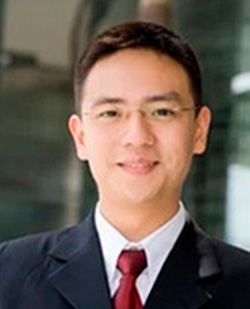
iENERGY legal and regulatory framework and other dimensions for low-carbon energy transition in resource-rich Caspian Sea region
CLIMA Lunch Seminar with Marat Karatayev
Abstract
Grounded in theories such as Sustainable Energy Transition Theory, Energy Citizenship Theory, and Resource Curse Theory, this seminar presentation will discuss the legal and regulatory challenges faced by the resource-rich Caspian Sea region, including Russia, Kazakhstan, Turkmenistan, Iran, and Azerbaijan, in transitioning towards low-carbon climate-friendly socio-technical energy systems. Specifically, Kazakhstan, a country rich in oil, gas, and coal, has made some practical steps by establishing legal and regulatory framework, with ambitious targets to increase renewable electricity production to 50% by 2050, improve energy efficiency by 50%, and reduce carbon emissions by 30-40% by 2050, compared to 1990 levels. Despite these steps, Kazakhstan's current renewable energy contribution remains at approximately 3% or 2.360 MW of total installed capacity. The country is still in a transitional stage of climate-energy legal and regulatory framework. In particular, the unpredictability of tariff mechanisms fixed by national legislation, subsidies, and licensing procedures troubles the attraction of long-term investments.
Furthermore, slow administrative processes for approving renewable energy projects, granting permits shaped by legal and regulatory frameworks, and ensuring grid access create hurdles that reduce the speed and efficiency of renewable project deployment. Finally, national currency sustainability, local oil-based economic impact, technical feasibility, Energy Charter Treaty and EU Carbon Border Adjustment Mechanism are secondary considerations in the legal and regulatory process. This seminar presentation will offer insights into the necessary reforms and or revision of current legal and regulations to overcome these challenges and ensure that resource-rich countries are on track to meet their climate and renewable energy targets.
About the speaker
 Dr Marat Karatayev is a Marie Skłodowska-Curie Fellow at the School of Law at the University of Torino, Italy, and a Research Fellow at the Institute for Systems Science, Innovation and Sustainability Research at Karl-Franzens University of Graz. He holds a Master’s by research degree in Environmental Protection Engineering, and a Ph.D. in Urban, Energy and Environmental Planning (University of Nottingham and Technical University of Torino). His research has focused on the socio-technical-political-legal economy of energy transitions, innovations and climate change, water-energy-food nexus system, and scenario quantitative mathematical generation tools. Recent research projects include: Visegrad Fund project No 223-10328 “Analysis & modelling the impact of bioenergy transition for security & sustainability in Central and Eastern Europe” (€365k); EU Fund project No 101106559 “iENERGY: improving policy and legislative mechanisms for international investment to renewable energy transition” (€240k); H2020 Fund project No 320169 MILESECURE 2050: Multidimensional impact of the low carbon European strategy on energy security, and socio-economic dimension up to 2050 perspective (€6.2M, EU funding); H2020 Fund project No 613286 POCACITO: Post-carbon cities of Tomorrow (€4.5M, EU funding).
Dr Marat Karatayev is a Marie Skłodowska-Curie Fellow at the School of Law at the University of Torino, Italy, and a Research Fellow at the Institute for Systems Science, Innovation and Sustainability Research at Karl-Franzens University of Graz. He holds a Master’s by research degree in Environmental Protection Engineering, and a Ph.D. in Urban, Energy and Environmental Planning (University of Nottingham and Technical University of Torino). His research has focused on the socio-technical-political-legal economy of energy transitions, innovations and climate change, water-energy-food nexus system, and scenario quantitative mathematical generation tools. Recent research projects include: Visegrad Fund project No 223-10328 “Analysis & modelling the impact of bioenergy transition for security & sustainability in Central and Eastern Europe” (€365k); EU Fund project No 101106559 “iENERGY: improving policy and legislative mechanisms for international investment to renewable energy transition” (€240k); H2020 Fund project No 320169 MILESECURE 2050: Multidimensional impact of the low carbon European strategy on energy security, and socio-economic dimension up to 2050 perspective (€6.2M, EU funding); H2020 Fund project No 613286 POCACITO: Post-carbon cities of Tomorrow (€4.5M, EU funding).
Registration
Register for the seminar. A Zoom link is provided upon registration.
Map of South Campus
View directions.
View on map of the Faculty of Humanities - South Campus.
View map of South Campus (pdf).
